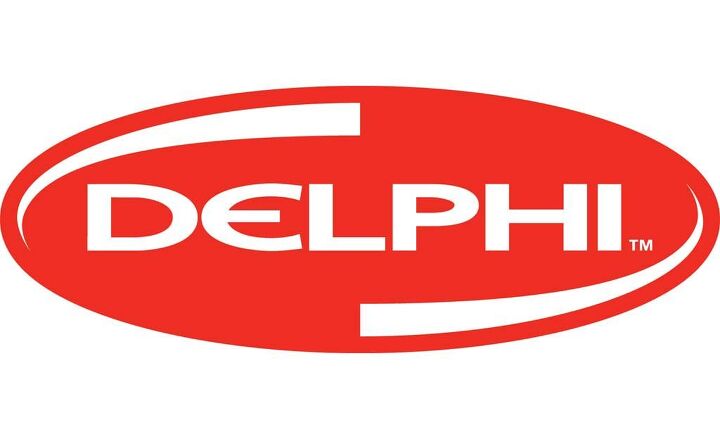Did Obama Administration Help Delphi Evade U.S. Taxes?

From Bloomberg’s Zachary Mider comes a new allegation regarding the restructuring of (formerly) American parts maker Delphi: the Treasury Department under Obama helped the company re-incorporate in England as part of a tax avoidance strategy. If that’s true, it’s an embarrassing revelation for a President who recently condemned American companies that incorporate abroad as “corporate deserters.” Like many things in the financial world, however, appearances are often deceiving.
As Mider explains, Delphi was spun off from GM in 1999 in an attempt to diversify the part’s division’s clientele and make it more globally competitive. The move didn’t pan out; by 2005 Delphi was in bankruptcy court, where it scraped along until the 2009 financial crisis. The Great Recession made Delphi’s situation acute; if GM collapsed, the parts company had no hope of surviving. Conversely, GM needed the company to keep supplying it with crucial parts. After the bailout package for GM was approved in the waning days of the Bush Administration, Treasury officials understood that Delphi would need to be recapitalized as well. Steven Rattner, the Wall Streeter appointed by President Obama to oversee the bailout of GM, helped broker a deal to “fix” Delphi by getting the company out of bankruptcy court.
Initially, the hedge fund Platinum Equity LLC of Los Angeles agreed to divvy up Delphi’s assets with GM, with the newly Treasury-backed carmaker providing the majority of the financing (Treasury money) for the deal. However, the agreement with Platinum fell through when another one of Delphi’s creditors, the hedge fund Elliot Management, objected to the terms of the deal. Elliot and the firm Silver Point Capital partnered to put together their own bid for Delphi, which GM agreed to. GM invested $1.7 billion into Delphi’s equity, and bought out its steering parts business and a few factories for a further $1.1 billion. All of this money came from an escrow account filled with $16 billion in bailout money set up after GM emerged from bankruptcy, and all the spending required Treasury Department approval before it could go forward. There was one small catch in the fine print of the deal: GM and the hedge funds would reincorporate Delphi in some foreign country, ostensibly to obtain a better tax position. Mider explains that this practice, known as “inversion,” is becoming increasingly common amongst U.S.-based companies seeking a more favorable tax climate. Delphi was incorporated in England for that purpose, and the money was disbursed from the Treasury escrow account after the reincorporation was complete. The original agreement with Platinum didn’t contain language about foreign reincorporation, although it later emerged that the fund’s lawyers had set up two paper companies in Luxembourg for that purpose.
The deal between Elliot, Silver Point, and GM to rescue Delphi turned out to be a great investment for all parties involved. After Delphi went public again in 2011, the stock price surged. GM sold its stake back to Delphi for a $1.6 billion profit, and Elliot Management booked $1.3 billion on an initial investment of $300 million. At this point, GM was under no obligation to pay the Treasury anything. The terms of the bankruptcy meant that all of the Treasury’s debt had been swapped for equity in the “new” carmaker. The U.S. Government wouldn’t see a dime of GM’s profits from the Delphi deal, besides any increase in the market value of its equity stake. And it had been cut out of a large chunk of the tax revenue from Delphi, which was now headquartered in England under more favorable rules.
The question becomes who knew what, when, and how much leverage the Treasury had to exert on the terms of the deal with Elliot and Silver Point. The time window for the agreement is key. GM’s bankruptcy proceedings concluded on July 10, 2009. Steven Rattner and the rest of the bailout task force stepped aside, believing their jobs were finished. But the collapse of the Platinum deal happened soon afterwards, because some of Delphi’s creditors weren’t satisfied with the terms. The deal between Elliot, Silver Point, and GM was inked on July 26. When interviewed by Bloomberg, Rattner claimed to have no knowledge of any plan to incorporate Delphi in a foreign locale at the time of the original negotiations. Even if he had, it’s not likely that he would have been able to stop it. Because the Treasury never technically held a direct stake in Delphi (unlike its assumption of equity in GM’s case), it was only an indirect party to the final settlement of Delphi’s bankruptcy proceedings. Rattner had denied a $150 million cash infusion from GM to Delphi previously, when it became clear that transfer wouldn’t end Delphi’s bankruptcy proceedings. The Treasury could have rejected disbursement of funds for GM’s investment in the parts maker after the reincorporation of Delphi in England. But that would have iced the deal and put Delphi’s future in jeopardy, which in turn would have been counterproductive to the purpose of the bailout in the first place. Even so, it’s not a proud moment in the management of the bailout by any stretch of the imagination.
The other factor to consider is that Rattner and the bailout task force may have believed that Delphi’s reincorporation wouldn’t affect its tax position after all. Mider reports that in September of 2009, the IRS notified Delphi that it was still considered a U.S. company and would be subject to U.S. corporate income tax rates. As a justification, the IRS cited a 2004 law meant to prevent exactly what Delphi had done: the creation of paper “surrogate foreign corporations” for the purposes of evading taxes. The IRS dispute with Delphi in this case is ongoing. If the company loses its appeal, it would owe about 20 percent more a year in taxes than it pays now (as well as any assessments for back taxes). If that’s the case, then the “inversion” of Delphi will be a moot point.
The broader takeaway from the whole saga is that any intervention by government in the spaces normally served by private equity is bound to have some unpleasant side effects. Simultaneously trying to manage, regulate, and tax a business is bound to produce more than a few conflicts of interest. At the very least, the Delphi deal embarrasses an Administration which has recently sought to turn up the heat on companies moving their headquarters abroad. It’s unlikely to change many minds about the wisdom of the bailout; those lines were drawn firmly some time ago. But the curious case of Delphi’s “inversion” will undoubtedly be cited in future debates about corporate tax reform in America, from both a left and a right-wing perspective.

More by J.Emerson
Latest Car Reviews
Read moreLatest Product Reviews
Read moreRecent Comments
- Corey Lewis It's not competitive against others in the class, as my review discussed. https://www.thetruthaboutcars.com/cars/chevrolet/rental-review-the-2023-chevrolet-malibu-last-domestic-midsize-standing-44502760
- Turbo Is Black Magic My wife had one of these back in 06, did a ton of work to it… supercharger, full exhaust, full suspension.. it was a blast to drive even though it was still hilariously slow. Great for drive in nights, open the hatch fold the seats flat and just relax.Also this thing is a great example of how far we have come in crash safety even since just 2005… go look at these old crash tests now and I cringe at what a modern electric tank would do to this thing.
- MaintenanceCosts Whenever the topic of the xB comes up…Me: "The style is fun. The combination of the box shape and the aggressive detailing is very JDM."Wife: "Those are ghetto."Me: "They're smaller than a Corolla outside and have the space of a RAV4 inside."Wife: "Those are ghetto."Me: "They're kind of fun to drive with a stick."Wife: "Those are ghetto."It's one of a few cars (including its fellow box, the Ford Flex) on which we will just never see eye to eye.
- Oberkanone The alternative is a more expensive SUV. Yes, it will be missed.
- Ajla I did like this one.


































Comments
Join the conversation
Excellent article.
Yep, the Elliott vultures running Delphi bent the Obama administration over a barrel and made BANK on their initial investment. "You want to rescue GM? Give us what we want or have fun building cars without steering columns." The administration caved completely. These are the same guys currently holding Argentina hostage over their defaulted bonds. And in a delicious little bit of serendipity, a certain Mrs. Ann Romney had a big investment in Elliott during this time, meaning that Ann and Mittens likely made millions on the bailout. This was likely one of the reasons Mitt refused to release all his tax returns. Google "Mitt Romney's Bailout Bonanza" for more detail.